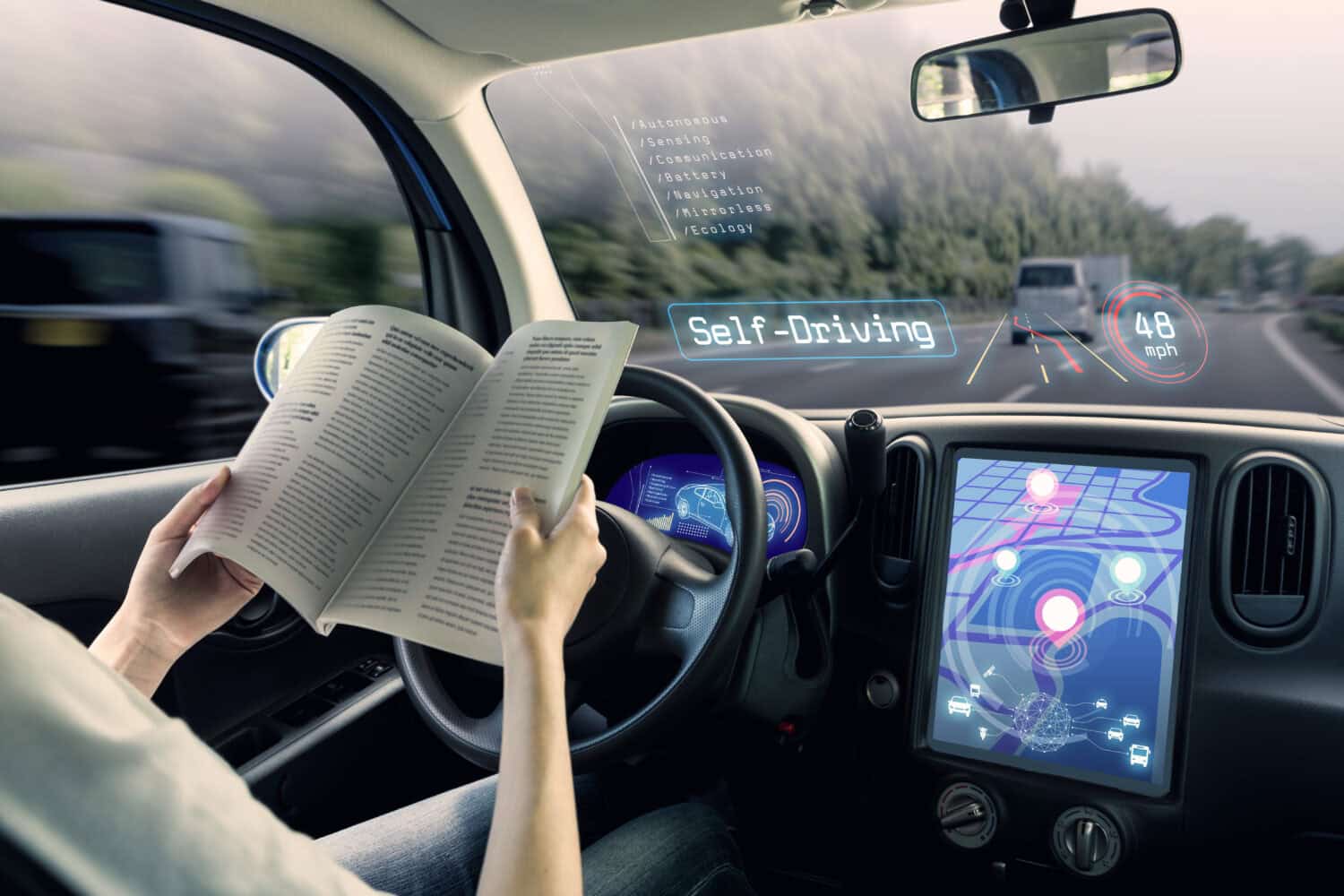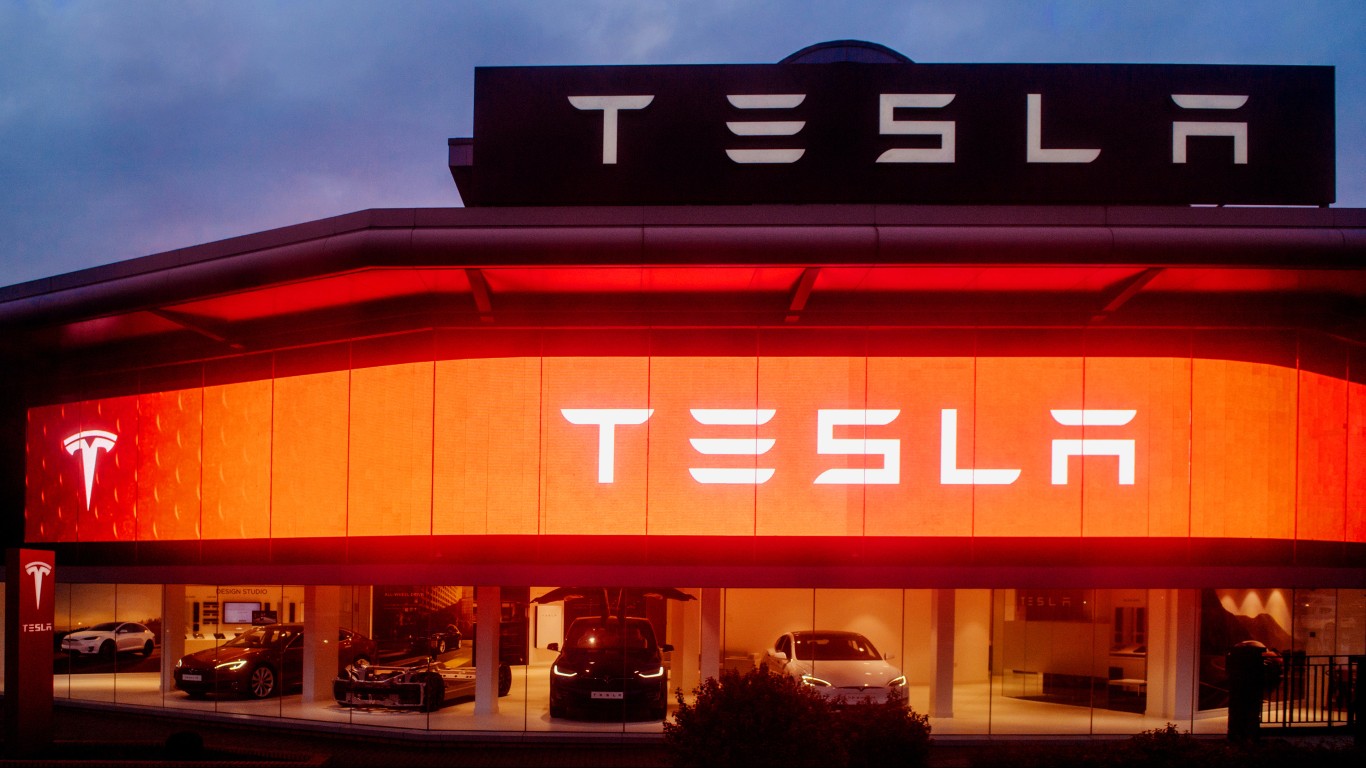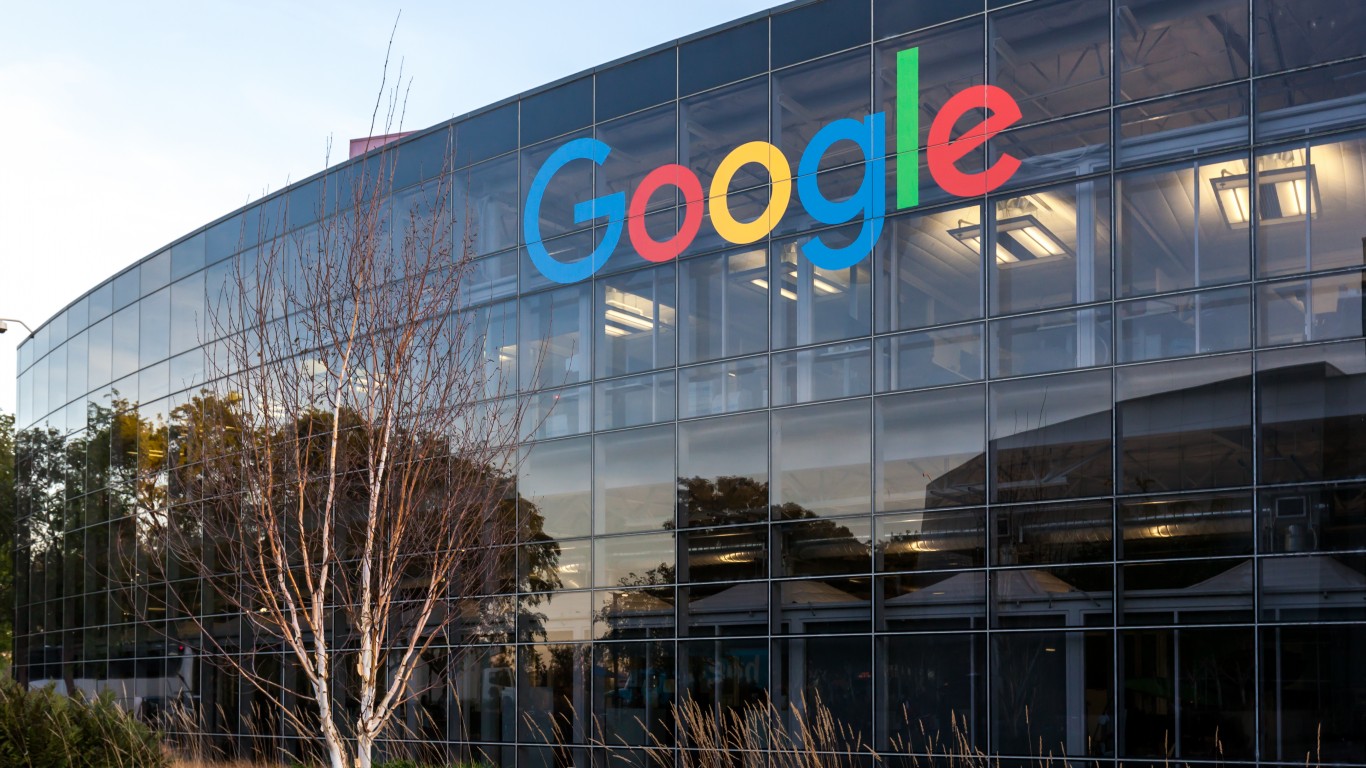Investing
Self-Driving Showdown: Is Tesla or Waymo Poised to Capture This Massive Market?

Published:

Autonomous driving technology is a key catalyst many companies have touted as the key rationale as to why investors may want to consider piling into already-expensive stocks. The idea is that as this technology becomes mainstream, leaders such as Tesla (NASDAQ:TSLA) that have adopted this technology early should come out ahead. With Tesla’s “Full Self Driving” technology at the forefront of the autonomous driving discussion, the company’s valuation certainly remains above levels its underlying car business suggests is warranted.
The thing is, Tesla isn’t the only player in this high-growth space. Alphabet (NASDAQ:GOOG) has its own subsidiary, Waymo, that’s making significant headway in this space, and is in the lead in many respects.
There are also a number of regulatory headwinds both companies are seeking to overcome, with full Level 5 autonomous driving still a ways away. Some accidents will always occur, and driverless cars will never be flawless. But most investors do believe that the company that can prove its technology is orders of magnitude safer than a human driver could win the day.
The question many investors have is whether self-driving technology is poised to dominate the vehicle market long-term, and if so, which company will come out ahead. Let’s dive into the pros and cons of Tesla and Waymo, and see if we can pick a winner in this space moving forward.

Tesla’s approach to autonomous driving technology is aimed at leveraging its vast fleet of vehicles to collect real-world data. The EV maker has sought to reposition itself as an AI company in recent earnings calls, calling out the company’s AI capabilities with respect to its Full Self-Driving (FSD) system as key to its investing thesis (the company’s Optimus program is an entirely different story for a different article).
By using Autopilot as a beta test, Tesla continues to gather crucial data from daily driving scenarios. The company hopes that this extensive dataset should create a robust neural network, which will allow FSD to learn and adapt to real-life situations faster than its competitors. The company is accumulating millions of miles of data daily, and there is an argument to be made that while the company is still a ways away from full regulatory approval for its technology to be used without human interaction, Tesla’s data set is among the largest in this space.
The company initially unveiled its robotaxi concept in 2019, and announced updated plans for its robotaxi vision in October. Certainly, the company is aiming high with its goal of having millions of robotaxis on the road at some point in the near future (it always seems to be a ways away).
In this regard, Waymo’s extensive robotaxi testing in key markets has gone well, and Tesla is behind the ball. Investors who remain bullish on Tesla stock still believe the company has what it takes to overtake Waymo, but there are plenty of skeptics out there who think otherwise.

A subsidiary of Alphabet, Waymo uses its own fleet of autonomous vehicles to gather data, relying on high-resolution cameras, LiDAR, and radar for detailed environmental views.
Unlike Tesla, Waymo avoids customer-driven data. Instead, the company uses crowdsourced annotated data from Google users to build out its own neural network. Waymo has emerged as the clear leader in autonomous driving, surpassing 100,000 paid trips per week. That’s an impressive data set on its own, and positions the company to win the race to full regulatory approval in new markets, and expanded approvals for existing areas (increasing its geographic footprint).
To date, the company operates in San Francisco, Los Angeles, and Phoenix. But Waymo plans to expand to Austin and surrounding areas in short order, potentially increasing its weekly paid rides significantly. On August 28, Waymo announced it would start all-day curbside pickups and drop-offs at Phoenix Sky Harbor International Airport. This move, shared on X with little fanfare, marks a significant step forward for self-driving vehicles. Many experts have noted that airports are key hubs for mobility services, making them ideal for testing autonomous cabs.
Waymo recently launched its sixth-generation self-driving technology, Waymo Driver. The updated system uses fewer sensors, cutting costs while retaining 13 cameras, four lidar units, six radars, and external audio receivers. This setup offers comprehensive coverage around the vehicle, extending up to 500 meters.
I think Waymo is currently seriously in the lead, but given the trajectory Tesla is on, it’s going to be difficult to pick a winner over a longer-term time frame (say, 10 years). For the next few years, I anticipate Waymo will continue to dominate the autonomous driving space, and this early mover advantage could be enough to provide Alphabet with yet another growth catalyst long-term investors can buy into.
Retirement planning doesn’t have to feel overwhelming. The key is finding expert guidance—and SmartAsset’s simple quiz makes it easier than ever for you to connect with a vetted financial advisor.
Here’s how it works:
Why wait? Start building the retirement you’ve always dreamed of. Click here to get started today!
Thank you for reading! Have some feedback for us?
Contact the 24/7 Wall St. editorial team.